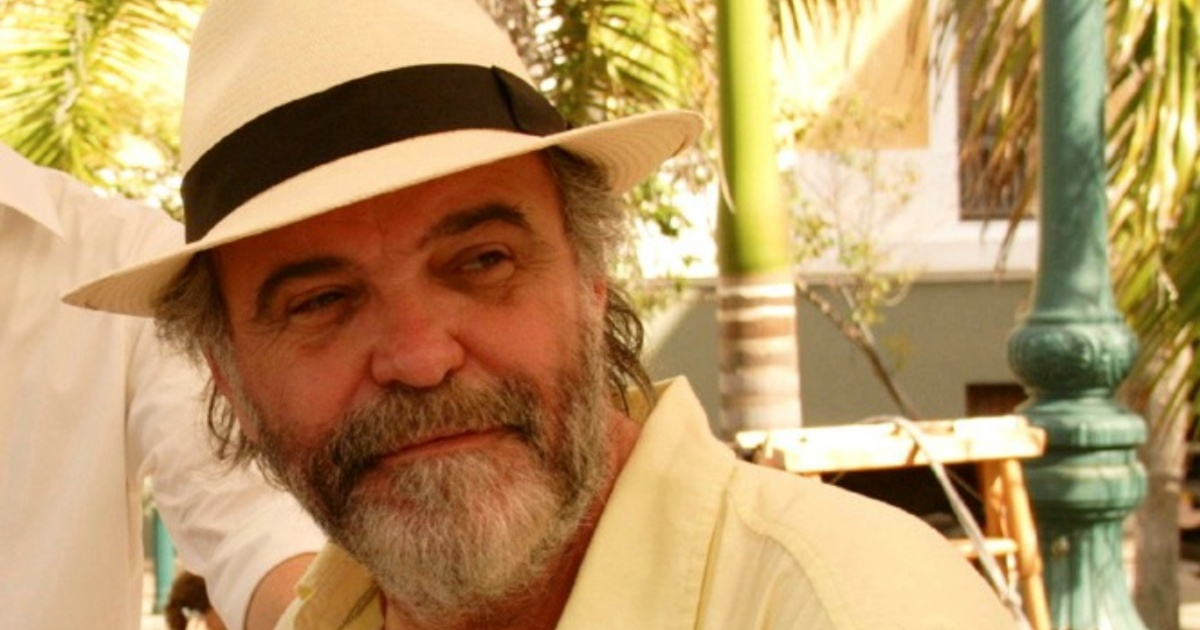
Related videos:
The filmmaker León Ichaso, a prominent figure in Cuban cinema in exile and in Hispanic culture in the United States, passed away early this Sunday at the age of 74 due to a heart attack, as confirmed by family sources to CiberCuba.
She had recently successfully finished cancer treatment and was preparing for a family reunion in Miami, postponed for over three years.
"Today is the most terrible day of my life. My beloved brother León Ichaso passed away today from a massive heart attack in his apartment in Los Angeles. No one could have imagined this! He was an inspiring person, full of life, curiosity, and youthful spirit, with dreams for everything. A unique individual, and everyone who knew him understands that. I am heartbroken," shared his sister, journalist and filmmaker Mari Rodríguez Ichaso, in a heartfelt message to CiberCuba.
Ichaso left a significant mark on Cuban themes, evident in his first feature film in Spanish, El Súper (1979), which is regarded as an emblematic film of the exile experience, as well as in Azúcar amarga (1996) and Paraíso (2009). His body of work also includes numerous milestones in made-for-television films and biographical projects in Hollywood and American television.
"The poet of Latino New York," as some filmmakers called him, and "The Scorsese of New York salsa musicians," as noted by The New York Times, left behind a filmography that serves as an essential archive for understanding the Latino migration drama in pursuit of the American dream.
Rodríguez recalled that many doors were closed to his brother in Hollywood because of his open rejection of Fidel Castro's regime.
"It is important to highlight that his anti-Castro stance did him a lot of damage in the Hollywood world. Because of that, he turned down many jobs that were unclear on that issue. When he made Azúcar amarga, many producers criticized him for his 'obsession' with being anti-Castro," stated Rodríguez, who mentioned his brother's position in opposition to Donald Trump, "because it reminded him of Castroism and political harassment."
More than four decades of work on the big screen establish Ichaso as an artist committed to his craft.
Loss, the space of cultural hybridization among migrants, and nostalgia were recurring themes in his work, which always found Cuba as a source of inspiration.
Son of Antonia Ichaso, a writer for radio and television, and Justo Rodríguez Santos, a revered poet and member of the Orígenes group, Ichaso left Cuba for Mexico at the age of 14, accompanied by his mother and sister, while his father stayed in Havana due to his sympathies with the Cuban revolution. However, a few years later, he grew disillusioned with the turn of events and joined his family in the United States in 1968.
Ichaso directed his first film in 1967 and since then he has dedicated himself to cinema and television, working with renowned figures such as Rubén Blades, Marc Anthony, Jennifer Lopez, Wesley Snipes, and Peter Coyote.
El Súper, a production that premiered in 1979, earned critical acclaim in the United States, secured a place in the historiography of exiled Cuban cinema, and became a classic.
Based on a Broadway play about an immigrant building superintendent trying to make his way in New York, El Súper emerged in the film industry as a chronicler of the struggles faced by migrants seeking success in the United States.
Giving voice to the world of Latin salsa in New York, where he settled, and staying true to his roots, he shot Crossover Dreams (1985), where Panamanian musician Rubén Blades plays Rudy Veloz, a promising salsa singer who dreams of reaching the pinnacle of success.
The film, perhaps due to the presence of Rubén Blades and for not addressing sensitive issues for the Cuban regime, was shown during the 1985 Havana Film Festival.
His immersion in the Latin identities that converge in the most iconic city in the world led him to direct Piñero and El Cantante, based on the life of Héctor Lavoe, the popular Puerto Rican salsa singer who died of AIDS at the age of 46 in 1993.
El Cantante starred Marc Anthony as Héctor Lavoe and Jennifer López as his wife, Puchi.
Anthony and López, who were among the producers of the film, specifically requested Ichaso to direct it.
"With El Cantante, I'm preparing for something big to happen, a significant breakthrough, but I'm also ready for a major disappointment. I don't think it will be the case, but if it is, I won't be crying over it. I always have a safety net ready," he said in an interview on the occasion of the film's premiere.
That "parachute" was Paraíso, from 2009, where he portrayed the tragedy of a Cuban balsero newly arrived in Miami, unaware of the codes and norms of another society, an outsider, displaced, unable to fit in anywhere.
With a minimal budget of $30,000, Ichaso filmed Paraíso, often shooting on the streets of Miami without permits and relying on the help of friends and family. This posed a challenge but also served as a creative stimulus.
Diverse, international, yet also personal, his filmography includes Sugar Hill (1994), Execution of Justice (1999), Hendrix (2000), The Fear Inside (1992), Zooman (1995), and Free of Eden (1999), but it doesn’t止 there. He also directed episodes of the series Miami Vice around 1984.
In that liminal space between Hollywood cinema (Piñero, Sugar Hill, Medium, and The Cleaner) and smaller, more personal projects like Paraíso, Ichaso left his mark on the film world and bequeathed us stories that became immortal thanks to his work.
"I feel like I'm sharing a secret: 'Here, take it. I'm going to pass it to you,'" he remarked in an interview. "It's such a joy, like taking someone to a favorite restaurant or letting them listen to your favorite song. Most of the worlds I introduce people to, they've never been to before. But once they discover them, they tend to stay."
Filed under: